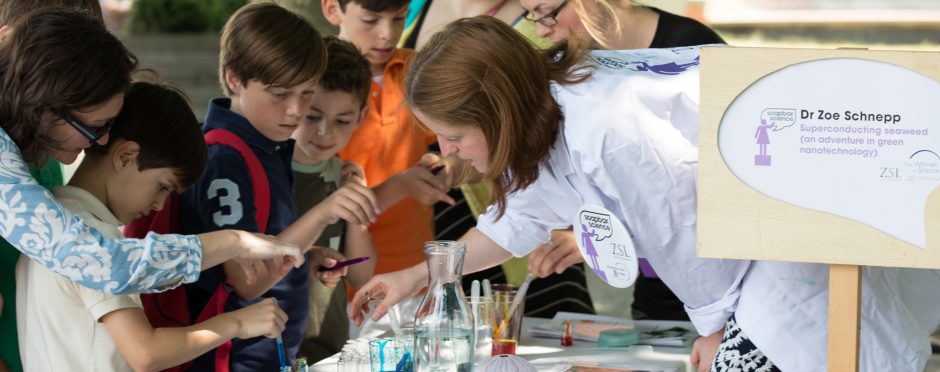 Chioma Vivian Ngonadi is a PhD student at the Department of Archaeology, University of Cambridge. She is a Gates Scholar and a mum to two young boys aged 3 and five years old. Her research examines how the West African Iron smelters in Lejja, Southeastern- Nigeria fed themselves and integrated the food quest among themselves in the deeper past (2,000- 3,000 B.C.). She will be talking about “ A Human Fingerprint on an Iron working Landscape” at London Soapbox Science on the 26th of May 2018.
Chioma Vivian Ngonadi is a PhD student at the Department of Archaeology, University of Cambridge. She is a Gates Scholar and a mum to two young boys aged 3 and five years old. Her research examines how the West African Iron smelters in Lejja, Southeastern- Nigeria fed themselves and integrated the food quest among themselves in the deeper past (2,000- 3,000 B.C.). She will be talking about “ A Human Fingerprint on an Iron working Landscape” at London Soapbox Science on the 26th of May 2018.
SS: How did you get to your current position?
CVN: I grew up in southeastern Nigeria and graduated with a B.A. in Archaeology from the University of Nigeria, Nsukka- Nigeria and an M.A. in Archaeology from the University of Dar es Salaam, Tanzania. On returning to Nigeria, I joined the academic staff of the Department of Archaeology, University of Nigeria, Nsukka in 2012. I was encouraged by my husband, Uche Ngonadi to apply for a PhD position in Cambridge which I did and I was awarded the prestigious Gates Cambridge Scholarship. Currently, I am in the third year of my PhD with a thesis title of “Early Agricultural Communities in Lejja, Southeastern-Nigeria: An Archaeobotanical Investigation”.
SS: What and who inspired you to get a career in science?
CVN: I can say that my love for science and archaeology began when I was a secondary school student. Reading history books and watching discovery channels about ancient treasures and explorers was quite inspiring and I was highly intrigued by past human activities and ways of life.
 SS: What is the fascinating aspect of your research?
SS: What is the fascinating aspect of your research?
CVN: I work on seeds, potsherds, pollens and in archaeology, these three proxies can help to reconstruct the plant food exploited, vegetation, climate, and human-landscape relationship in the deeper past. I find it fascinating that these archaeological materials can reveal so much about what happened thousands of years ago and can help us link the past to the future.
SS: What attracted you to Soapbox Science?
CVN: I enjoy taking part in science outreach events and talking to people about my research. I have done so in different ways in Cambridge and Nigeria. For me, Soapbox offers a new platform to discuss and inform the public about Archaeology and the various methods of understanding the past.
SS: Sum up in your word your expectation of the day
CVN: Excitement!!!
 SS: If you could change one thing about the scientific culture right now, what would that be?
SS: If you could change one thing about the scientific culture right now, what would that be?
CVN: I would like researchers to look beyond their disciplines and experience what is happening in other fields. There should be more scientific communications between scientist, and the public.
SS: What would you recommend for a woman studying for a PhD?
CVN: PhD journey can be quite overwhelming, but you should be kind to yourself and take a step at a time. Try and use your current position to create space for others along the way and build bridges through your subject.
